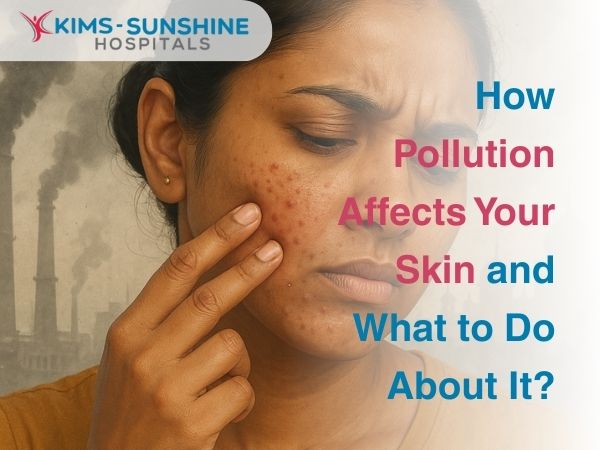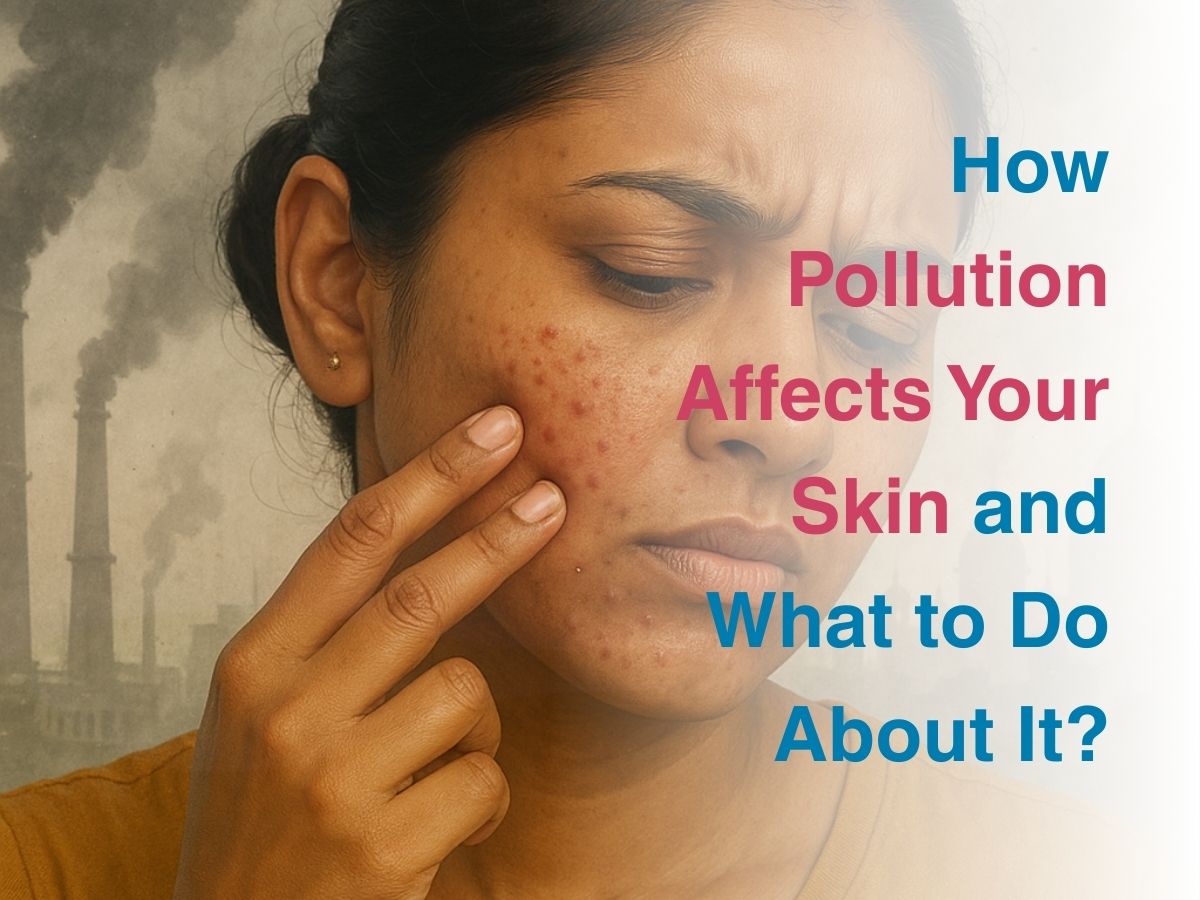
How Pollution Affects Your Skin and What to Do About It?

Difference Between Sun Damage and Pollution Damage on Skin-
The sun is bold and unashamed, a fiery painter that scorches the skin with strokes of ultraviolet, burning, tanning, and leaving its mark like an artist who works with fire instead of colour, while pollution is subtler – creeping in like invisible dust that rusts the metal slowly from within. Though both cause harm, their methods are different – with the sun damaging DNA and bringing immediate reminders in the form of redness or tan, whereas pollution burrows deep, lodging particles into pores, stirring oxidative stress and weakening skin structure until fine lines and dullness appear quietly over time. In India, the two often work together as accomplices, with sunlight weakening the skin barrier and pollution slipping through the cracks, making it necessary for us not to choose between sunscreen or anti-pollution care but to weave both together, for only then can we defend against the hammer of the sun and the termite-like erosion of pollution at the same time.
PM2.5 and Its Effect on Facial Skin-
PM2.5 sounds technical enough to be ignored but in reality is the most cunning of all. It consists of particles so small they make the thickness of a strand of hair look like a tree trunk in comparison. They float in the air almost unseen, enter the pores like tiny thieves and once inside – set off a chain reaction of oxidative stress, damaging collagen and elastin, dulling the skin’s tone and encouraging breakouts that refuse to heal. Nowhere is this more evident than in crowded Indian cities like Delhi, Kolkata, or Mumbai where levels of PM2.5 often soar far beyond safety limits, so that even the healthiest skin begins to look weary, tired, and older than its years. What makes it worse is not simply a single day of exposure but the slow, unrelenting build-up, like a trickle of water carving through stone. This is why defence against PM2.5 must be daily and disciplined, never occasional or careless.
Skincare Routine to Protect Skin from Pollution-
A skincare routine that truly protects against pollution is less about vanity and more about creating a rhythm of care, where each step flows into the next like verses of a song, beginning at night with double cleansing – first with an oil-based wash that pulls out the stubborn pollutants clinging like glue, then with a water-based cleanser that sweeps away the residue, followed by a toner that restores balance and calms. Then serums packed with antioxidants like niacinamide or green tea that fight off the free radicals should be next on your list. A good quality, unscented moisturiser that locks everything in, fortifying the barrier like the final stone in a fortress wall can round out your routine before bed. In the day, the armour must be completed with a broad-spectrum sunscreen that shields not just from UV but from pollutants too, while once a week exfoliation and masks offer deeper renewal. When this is diligently combined with a lifestyle that values fruits, water, rest and mindfulness, what emerges is not just a routine but a ritual, a daily poem written on the skin, ensuring that despite the smoke and dust of Indian streets, the glow is not stolen away.
Conclusion
In India, where pollution is a constant background note, sometimes loud like the blaring horn of a truck or sometimes quiet like the haze that hangs above rooftops, our skin bears the burden without complaint, quietly absorbing the blows until we notice the fine lines, the dullness, the spots that were not there before. But, it is never too late to offer it care and this care is not about fear or panic but about respect, about recognising that the skin is our shield, our storyteller, our companion that deserves protection. So, by weaving small acts into our days, by cleansing, hydrating, shielding and nourishing it, we can allow our skin not only to survive pollution but to thrive despite it. In doing so, we reclaim not just our glow but our confidence, showing that pollution may surround us but it does not have to define us.






